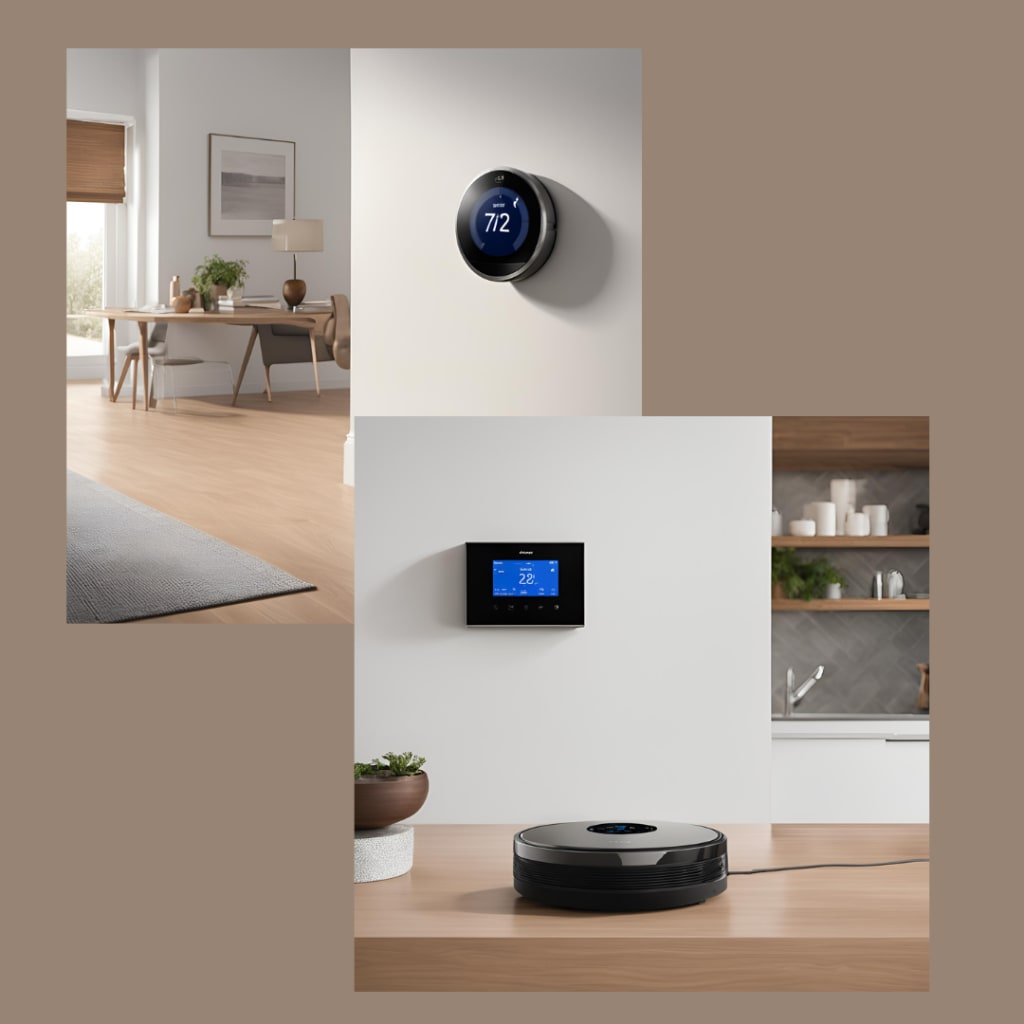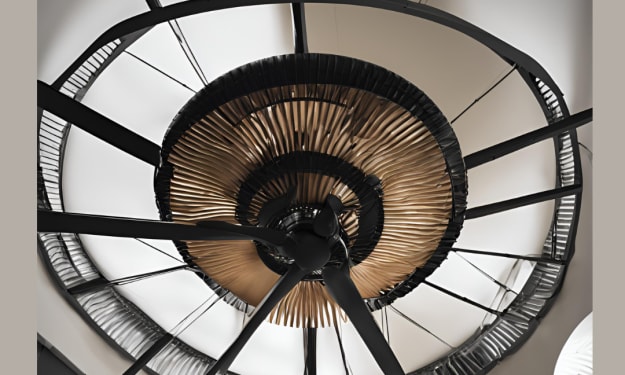From Vision to Reality: The Inventions That Transformed Home Living
How the Smart Thermostat and Robot Vacuum Came to Be

The Birth of the Smart Thermostat
In the early 2000s, the world was buzzing with technological advancements, yet one area remained stubbornly outdated: home temperature control. Traditional thermostats, with their manual settings and lack of precision, were costing homeowners money and wasting energy. It was a problem begging for a solution.
Tony Fadell, a visionary engineer who saw the potential for a smarter, more efficient way to manage home heating and cooling. Fadell understood that the principles of thermodynamics and energy conservation could be harnessed to create a revolutionary new device. He envisioned a thermostat that could learn from its users, adjust settings automatically, and be controlled remotely via the internet.
But turning this vision into reality was no easy feat. The first challenge was ensuring that the new device would be compatible with existing HVAC systems in millions of homes. Fadell and his team at Nest Labs had to design a product that was both technologically advanced and user-friendly. They needed a thermostat that could gather data from its environment, learn the habits of its users, and make intelligent decisions—all while being intuitive enough for anyone to use.
Security was another major concern. Since the smart thermostat would be connected to the internet, it was vulnerable to hacking. The team invested significant resources into creating a robust security system to protect users' data and ensure the device's integrity.
After years of development and countless obstacles, the Nest Learning Thermostat was born. It was an instant hit. Homeowners were thrilled with the energy savings and the convenience of being able to control their home's temperature from their smartphones. The device's sleek design and innovative features quickly made it a must-have gadget.
The success of the smart thermostat had far-reaching implications. It not only helped reduce energy bills but also contributed to environmental conservation by optimizing energy usage. Nest Labs, and later Google after acquiring the company, became synonymous with smart home technology. The smart thermostat's legacy paved the way for a myriad of smart home devices, proving that integrating everyday home appliances with advanced technology could significantly improve efficiency and convenience.
Today, the smart thermostat remains a cornerstone of smart home technology, demonstrating how scientific principles and practical needs can come together to create something truly transformative.
Product on Amazon:
- Google Nest Learning Thermostat - Programmable Smart Thermostat for Home (Best Seller)
- ecobee SmartThermostat with Voice Control (Mover & Shaker)
The Invention of the Robot Vacuum Cleaner
In the late 1990s, amidst the hustle and bustle of everyday life, a simple yet time-consuming task loomed over many households: vacuuming. This mundane chore was universally disliked, but there seemed to be no way around it. That is, until a team of engineers at iRobot decided to take on the challenge of automating home cleaning.
Colin Angle, one of iRobot's co-founders, was inspired by the principles of robotics and artificial intelligence. He believed that a small, autonomous device could navigate a home and clean its floors without human intervention. The concept was revolutionary, but bringing it to life would require overcoming significant technical hurdles.
The team knew they needed to create a robot that could handle the complexities of a home environment. This meant designing sensors that could detect obstacles, stairs, and changes in floor surfaces. The robot would need to be smart enough to map out its cleaning path, avoid getting stuck, and cover every inch of the floor efficiently. On top of that, it had to be powerful enough to pick up dirt and debris while being compact and quiet.
The engineers spent countless hours developing and refining their prototype. They faced numerous setbacks, from navigation issues to battery life challenges. But they persisted, driven by the vision of a future where cleaning could be hands-free.
Finally, in 2002, the Roomba was introduced to the world. This small, disc-shaped robot quickly became a household sensation. People were amazed at how the Roomba could navigate around furniture, avoid falling down stairs, and return to its charging dock when its battery was low. It was like having a little cleaning assistant that never complained and worked tirelessly.
The Roomba's success marked a significant milestone in the world of home robotics. It proved that integrating AI and robotics into everyday tasks could vastly improve convenience and efficiency. The positive reception of the Roomba encouraged further innovations in home automation, leading to the development of other robotic cleaners and smart home devices.
Today, the robot vacuum cleaner stands as a testament to the power of innovative thinking. It has transformed a tedious chore into a seamless, automated process, allowing people to spend their time on more enjoyable activities. The legacy of the Roomba continues to inspire new advancements in technology, making our lives easier and more convenient.
Product on Amazon:
- iRobot Roomba 675 Robot Vacuum (Best Seller)
- eufy by Anker, BoostIQ RoboVac 11S (Slim) (Mover & Shaker)
About the Creator
BRIAN LE
As a writer specializing in the integration of technologies and innovative methodologies, my passion lies in leveraging advanced creative thinking strategies to drive significant advancements and create impactful solutions.
Enjoyed the story? Support the Creator.
Subscribe for free to receive all their stories in your feed.






Comments (1)
A superb writing bao.